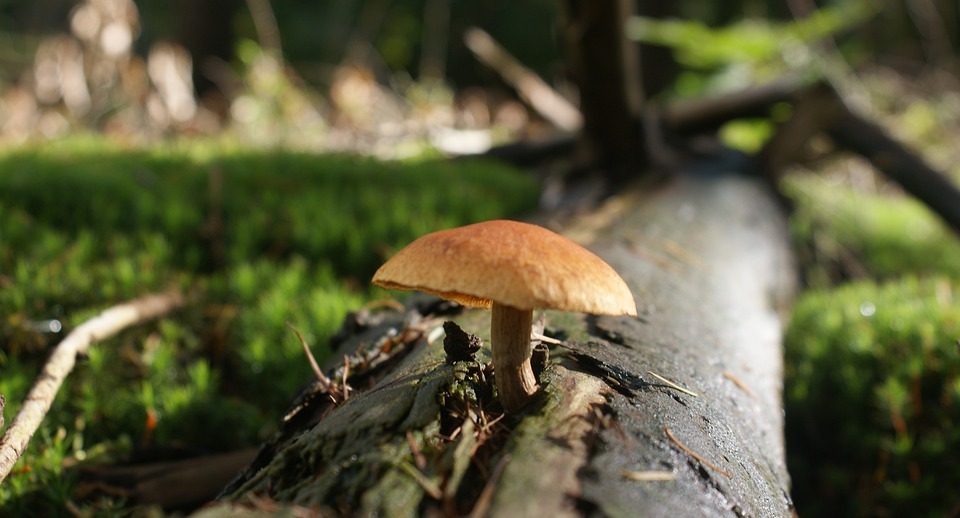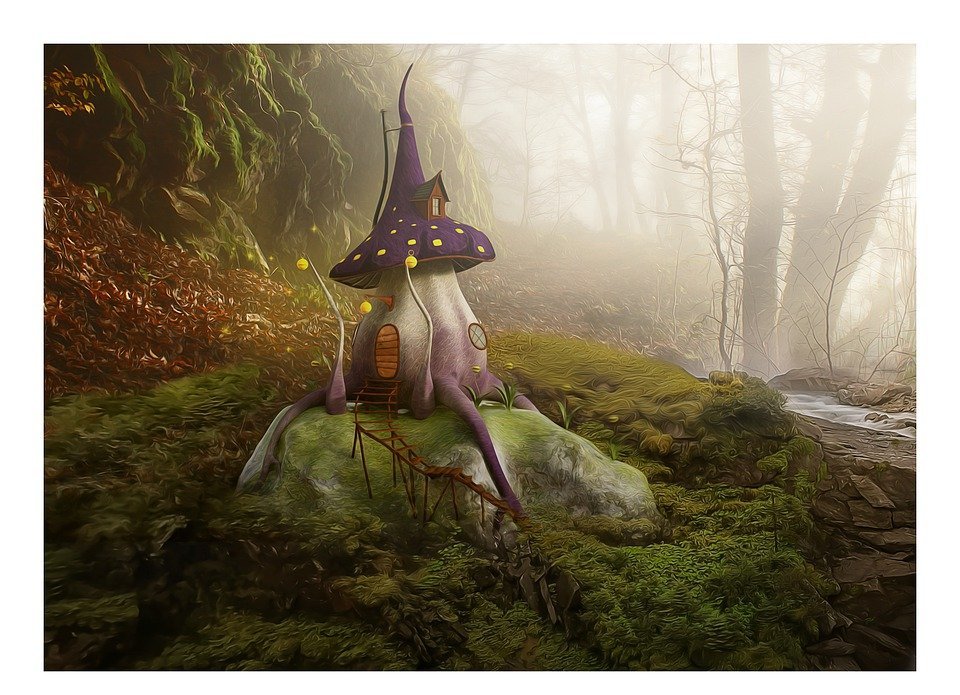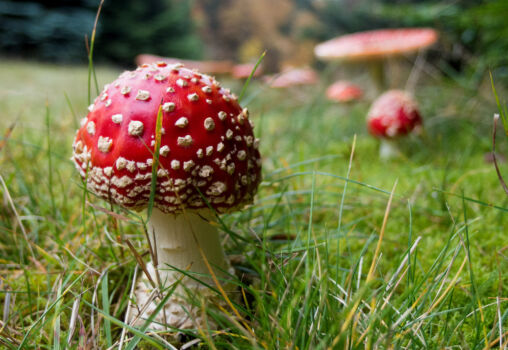This article delves into the complex relationship between dogs and mushrooms, exploring the potential dangers and safe options. We'll cover the different types of mushrooms, their toxicity levels, and the signs of mushroom poisoning in dogs. We'll also provide a comprehensive guide on how to prevent your furry friend from ingesting these fungi and offer advice on what to do if they do.
Part 1: The Risks of Mushrooms for Dogs

1.1. The Toxicity of Mushrooms
Mushrooms are a diverse group of fungi, and only a small percentage are poisonous to dogs. However, identifying which mushrooms are safe can be extremely difficult, even for experienced mycologists. This is because many toxic mushrooms look very similar to edible varieties.
1.1.1. Types of Poisonous Mushrooms
Death Cap Mushrooms (Amanita phalloides): These are among the deadliest mushrooms for dogs and humans alike. They contain amatoxins, which are potent liver toxins that can cause severe damage and even death. Death caps are often mistaken for edible mushrooms like the "Caesar's mushroom" due to their similar appearance.
Destroying Angel Mushrooms (Amanita virosa): Similar to death caps, these mushrooms contain amatoxins and are highly toxic. They are easily confused with other white-capped mushrooms, which can lead to accidental ingestion.
Galerina Mushrooms (Galerina spp.): These mushrooms contain amatoxins and are also extremely dangerous to dogs. They often grow on decaying wood and resemble certain edible mushrooms, making identification challenging.
False Morel Mushrooms (Gyromitra spp.): These mushrooms contain gyromitrin, a toxin that can cause liver and kidney damage. Their irregular, brain-like caps can be mistaken for the true morel, but they are not safe for consumption.
Jack-O'-Lantern Mushrooms (Omphalotus olearius): While not as deadly as other toxic mushrooms, these can cause gastrointestinal upset and hallucinations in dogs. They are often mistaken for chanterelles due to their similar orange-red colour.
1.1.2. Symptoms of Mushroom Poisoning in Dogs
The symptoms of mushroom poisoning in dogs can vary depending on the type of mushroom ingested and the amount consumed. Some common symptoms include:
Gastrointestinal Distress: Vomiting, diarrhoea, abdominal pain, and excessive drooling are often the first signs.
Neurological Symptoms: Tremors, seizures, weakness, and loss of coordination can occur.
Liver Failure: Severe liver damage can lead to jaundice, lethargy, and fluid buildup in the abdomen.
Kidney Failure: Mushroom toxins can also damage the kidneys, leading to decreased urine production and other complications.
1.1.3. The Importance of Prompt Action
If you suspect your dog has eaten a mushroom, it's crucial to act quickly. The longer the toxin is in their system, the more severe the damage can be.
1.2. Why Dogs Are Prone to Eating Mushrooms
Dogs are curious creatures and may be drawn to the unusual shapes and colours of mushrooms. Their sense of smell can also be a factor, as some mushrooms have a pleasant aroma.
1.2.1. Common Scenarios for Mushroom Ingestion
Exploring in the garden or park: Dogs may encounter mushrooms growing in gardens, parks, or wooded areas.
Accidental ingestion: Dogs may accidentally eat mushrooms that have been left out on the ground or in compost bins.
Curiosity: Dogs may be drawn to the unusual appearance of mushrooms and attempt to taste them.
Foraging behaviour: Some breeds are naturally predisposed to foraging, which may increase the likelihood of them encountering mushrooms.
1.3. The Importance of Prompt Action
If you suspect your dog has eaten a mushroom, it's crucial to act quickly. The longer the toxin is in their system, the more severe the damage can be.
1.3.1. Steps to Take If Your Dog Eats a Mushroom
Identify the mushroom: If possible, try to identify the mushroom your dog ate. This will help your vet determine the best course of treatment. Take a photo or collect a sample of the mushroom if you can safely do so.
Contact your vet immediately: Even if your dog is showing no symptoms, it's essential to contact your vet. They may advise you to induce vomiting or bring your dog in for immediate examination.
Collect a sample of the mushroom: If you can safely collect a sample of the mushroom, take it with you to the vet. This will help them to identify the toxin and determine the most effective treatment.
Part 2: Safe Mushrooms for Dogs

Not all mushrooms are poisonous to dogs. Some species are considered safe for consumption, but it's essential to be cautious and consult with your vet before offering any mushrooms to your pet.
2.1. Identifying Safe Mushrooms
Cultivated Mushrooms: Most cultivated mushrooms, such as button mushrooms, portobello mushrooms, and cremini mushrooms, are generally safe for dogs in small amounts. These are readily available in supermarkets and are unlikely to contain toxins.
Shiitake Mushrooms: These mushrooms are a popular choice for both humans and dogs, and they are known for their health benefits. They can be found in both fresh and dried forms.
Oyster Mushrooms: These mushrooms are also considered safe for dogs and have a mild flavour. They are often grown commercially and readily available.
2.2. Considerations for Feeding Mushrooms to Dogs
Small amounts: Even safe mushrooms should be given to dogs in small quantities. Too much of any food can cause digestive upset, even safe ones.
Cooking: It's best to cook mushrooms before feeding them to your dog to reduce the risk of digestive upset. Cooking helps to break down the mushroom's structure and make it easier to digest.
Individual sensitivities: Some dogs may have sensitivities to certain mushrooms, even safe ones. It's always a good idea to start with a small amount and monitor your dog for any adverse reactions.
Variety is key: While the mushrooms listed above are generally safe, it's essential to avoid feeding your dog any other wild mushrooms, even if they appear to be edible.
Part 3: Prevention is Key

The best way to prevent your dog from eating mushrooms is to be aware of the risks and take precautions.
3.1. Keeping Mushrooms Out of Reach
Secure your garden: Keep your garden free of wild mushrooms by regularly removing them.
Store mushrooms properly: Store mushrooms in the refrigerator or in airtight containers.
Clean up after foraging: If you enjoy foraging for mushrooms, be sure to clean up any discarded mushrooms to prevent your dog from accidentally ingesting them.
Compost bins: Keep compost bins covered or in a secure area inaccessible to your dog.
3.2. Supervision During Walks and Playtime
Keep a close eye on your dog: When walking your dog, keep a close watch and discourage them from sniffing and nibbling on unknown plants or fungi.
Teach a "leave it" command: Training your dog to leave items on command is a valuable tool for preventing them from eating things they shouldn't.
Use a leash: Leashing your dog in areas where mushrooms may be present helps to keep them from reaching them.
3.3. Awareness of the Environment
Know your surroundings: Be aware of areas where mushrooms are known to grow, such as forests, parks, and gardens.
Avoid mushroom-prone areas: If your dog is prone to eating mushrooms, avoid walking in areas where they are likely to be found.
Seasonal changes: Mushroom growth is often influenced by seasonal changes. Be extra vigilant during the spring and autumn months when mushrooms are more prevalent.
Part 4: Understanding the Science Behind Mushroom Toxicity
Mushrooms contain a variety of toxins, and the effects of these toxins can vary depending on the type of mushroom and the amount consumed.
4.1. Amatoxins
Amatoxins are some of the most dangerous mushroom toxins. They are found in death cap and destroying angel mushrooms. Amatoxins cause severe liver damage by inhibiting the production of essential proteins. This can lead to liver failure, coma, and death if not treated promptly.
4.2. Gyromitrin
Gyromitrin is a toxin found in false morel mushrooms. It is a potent liver and kidney toxin and can cause serious health problems in dogs. When ingested, gyromitrin breaks down into a toxic compound that damages the liver and kidneys, leading to potential organ failure.
4.3. Muscarine
Muscarine is a toxin found in several types of mushrooms. It can cause a range of symptoms, including drooling, vomiting, diarrhoea, and slowed heartbeat. These symptoms occur due to muscarine's effect on the nervous system, interfering with nerve signals and leading to muscle weakness and other complications.
4.4. Psilocybin
Some mushrooms contain psilocybin, a psychoactive compound that can cause hallucinations and altered states of consciousness in dogs. While not typically life-threatening, these effects can be distressing for the dog and require veterinary attention.
Part 5: First Aid for Mushroom Poisoning
If you suspect your dog has eaten a mushroom, it's essential to act quickly.
5.1. Inducing Vomiting
In some cases, your vet may advise you to induce vomiting to remove the mushroom from your dog's stomach. However, inducing vomiting is not always recommended and should only be done under the guidance of a veterinarian.
5.1.1. Risks of Inducing Vomiting
Aspiration: Vomiting can cause the stomach contents to enter the lungs, leading to pneumonia.
Esophageal damage: Forceful vomiting can cause damage to the esophagus, especially in dogs with pre-existing conditions.
Ineffectiveness: Inducing vomiting may not be effective if the toxin has already been absorbed into the bloodstream.
5.2. Transporting Your Dog to the Vet
If your dog is showing signs of mushroom poisoning, transport them to your veterinarian immediately. Bring a sample of the mushroom with you if possible.
5.3. Emergency Treatment
Treatment for mushroom poisoning depends on the type of mushroom ingested and the severity of the symptoms. Your vet may administer activated charcoal to absorb the toxins, IV fluids to prevent dehydration, and other supportive care.
5.3.1. Supportive Care
Gastrointestinal protection: Medications to reduce vomiting and diarrhoea.
Fluid therapy: Intravenous fluids to prevent dehydration and support organ function.
Liver and kidney support: Medications to protect the liver and kidneys from further damage.
Anti-seizure medications: To control seizures if present.
Monitoring: Close monitoring of vital signs and organ function is essential.
Part 6: FAQs
6.1. Are all wild mushrooms poisonous to dogs?
No, not all wild mushrooms are poisonous to dogs. However, identifying safe mushrooms can be difficult, so it's best to err on the side of caution and avoid allowing your dog to eat any wild mushrooms.
6.2. What if my dog only ate a small piece of mushroom?
Even a small piece of a poisonous mushroom can be dangerous. Contact your vet immediately if you suspect your dog has eaten any mushrooms.
6.3. Can I give my dog milk to treat mushroom poisoning?
Giving your dog milk to treat mushroom poisoning is not recommended. Milk may actually make the situation worse by increasing the absorption of toxins.
6.4. How long does it take for symptoms of mushroom poisoning to appear?
Symptoms of mushroom poisoning can appear anywhere from a few hours to several days after ingestion.
6.5. What are the long-term effects of mushroom poisoning in dogs?
The long-term effects of mushroom poisoning can vary depending on the type of mushroom ingested and the severity of the poisoning. Some dogs may experience permanent liver damage, kidney damage, or neurological problems.
6.6. Can I prevent my dog from eating mushrooms in the future?
You can help prevent your dog from eating mushrooms in the future by keeping them away from areas where mushrooms grow, training them to leave items on command, and being vigilant during walks and playtime.
In conclusion, while some mushrooms are safe for dogs in small quantities, the risks associated with wild mushrooms make it vital to exercise caution and seek professional advice if your dog has ingested any. By understanding the potential dangers and taking preventive measures, you can help protect your beloved canine companion from the harmful effects of mushroom poisoning.
Everyone is watching
-

Can Dogs Eat Bananas? A Guide to Safe Treats
DOGS & PUPPIESThis comprehensive guide will delve into the world of canine nutrition, focusing on the popular question: can ...
-

Can Dogs Eat Oranges? (Is It Safe or Toxic?)
DOGS & PUPPIESThis article delves into the question of whether dogs can safely consume oranges. We'll explore the nutrition...
-

Can Dogs Eat Grapes? The Shocking Truth About This Fruit
DOGS & PUPPIESThis article delves into the controversial topic of grapes and dogs, exploring the potential dangers associate...
-

Why Do Dogs Eat Poop? Understanding Coprophagia in Dogs
DOGS & PUPPIESThis article delves into the perplexing phenomenon of coprophagia, the act of eating faeces, in dogs. We explo...
-

Can Dogs Eat Shrimp? A Guide to Safety and Risks
DOGS & PUPPIESThis comprehensive guide dives into the world of shrimp and dogs, exploring the potential benefits and risks a...
